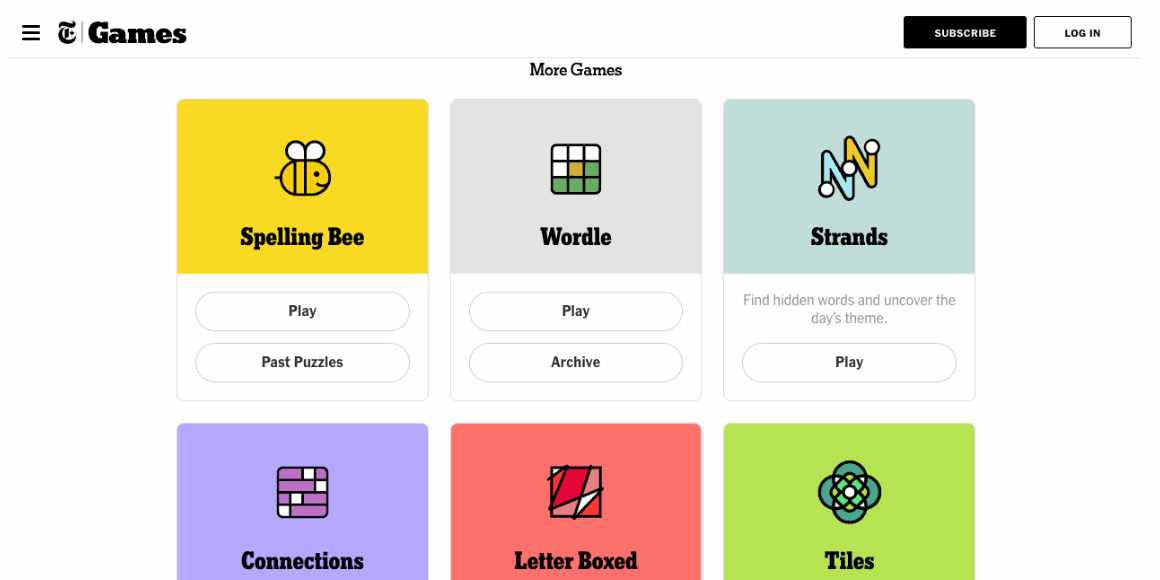A few months ago, at a reunion of my business school girlfriends, a number of them waxed lyrical about NYT Games. We are all in our wisdom years, so we are very aware of the importance of keeping the mind active. Research has shown that mind games like crosswords, wordle, sudoku, help keep our minds active and alert. Intrigued, I downloaded the app (it’s free) and started playing.
I’m hooked! NYT Games are a daily practice that I enjoy immensely. I start in the morning, usually at the end of my journalling ritual, and work on them throughout the day, as they provide a break from my work of coaching and facilitation, of being “on” with clients, and my writing.
But as I worked through my Spelling Bee this morning, it occurred to me that there are several lessons from playing these games that are relevant to problem-solving at work. Here are 8 lessons I have gleaned from playing these games that leaders can embrace to address complex problems they face:
- Break Big Problems Into Manageable Chunks
At first glance at the Crossword game, the grid seems overwhelming. Leaders often face similar feelings when encountering massive problems at work. The key is to break the problem down into smaller, manageable parts. In a crossword, solving just a few clues gives you the letters you need to unlock more answers. Likewise, at work, identifying smaller wins can help gain momentum. Start with the pieces of the problem you understand, and use those insights to guide you toward the solution. - Look for Patterns
Games like Wordle teach us to search for patterns. In Wordle, the placement of one letter can dramatically change your guess. Leaders also benefit from recognizing patterns, whether they appear in customer behaviour, market trends, or team dynamics. Identifying patterns helps anticipate future challenges and speeds up the problem-solving and decision-making process. - Change your perspective
The Spelling Bee game has a “refresh” button. When I look at the 7 letters and feel I can’t find any more words, a quick refresh always yields new, and sometimes simple and obvious words. “Refresh” is now my best friend in seeing things differently. The same happens in leadership: problems often persist because we’re looking at them from one angle. Effective leaders know when to step back, seek fresh perspectives, or ask different questions. A simple shift in mindset can reveal solutions that were previously hidden. - It’s OK to Fail
The NYT Games app will tell you immediately if you have erred e.g. a word you have chosen is not in their Word List. I have been amazed at how many words I wildly guessed at that were actually words! In Wordle, there’s no penalty for getting a word wrong, as long as you use the information from each guess to refine your approach. It doesn’t matter if I might be wrong – I try anyway. Similarly, leaders should adopt a similar approach: make decisions, evaluate outcomes, and adjust based on feedback. Experimentation and failure are part of the process. View failure as learning. The faster you can iterate on your approach, the quicker you’ll land on a successful solution. - Focus, but Don’t Overthink
One of the delights of games like Spelling Bee is how a simple word can unlock a breakthrough. Sometimes, I overlook the most obvious solutions (the minimum 4-letter word) while searching for complex answers (using all 7 words to create a pangram). In leadership, overthinking can create unnecessary complexity. Learn to trust your instincts and not get bogged down by analysis paralysis. Solutions are often a lot simpler than we think. - Track your progress
NYT Games keeps track of your progress and gives you constant feedback on how you are doing. In Spelling Bee for example, you move through 9 grades from Beginner to Genius, with constant feedback on where you are. And the scores to qualify at each stage are clear. When solving problems at work, it’s important to keep track of progress, and to build in feedback, so that you and your team will know how well you are doing and if you need to course correct. - Take breaks
It’s possible to leave a game open and return to it. If I feel stuck, am a little tired of the game, or have something else to do, I leave the puzzle and return to it throughout the day, and even over several days. When I return, I am guaranteed to find more solutions. At work, when faced with a difficult problem, take a break – go for a walk, tackle an unrelated task, have lunch or coffee, or even pack up and go home. The problem will be there tomorrow, but you will be more energized to tackle it. - Celebrate Small Wins
NYT Games helps celebrate small achievements—a pangram in Spelling Bee or a personal best in Wordle. And the big win of getting Genius in Spelling Bee has me jumping for joy. In leadership, celebrating wins is crucial. Acknowledging progress, no matter how small, boosts morale and keeps you and your team motivated. These moments of success create a positive feedback loop that encourages further problem-solving. Indeed, celebrating your wins can make problem-solving a challenge to be embraced, rather than feared, developing a winning attitude in your team.
Try the NYT Games (or any other games) and reflect on what lessons emerge for you. At the least, you will have a lot of fun. As NYT Games points out:
“Life is more fun with Games”





